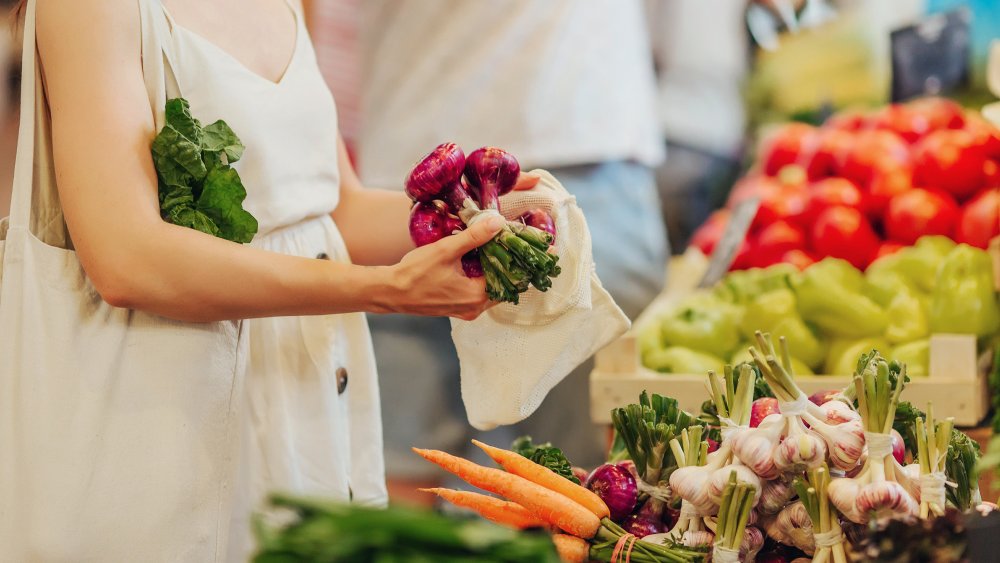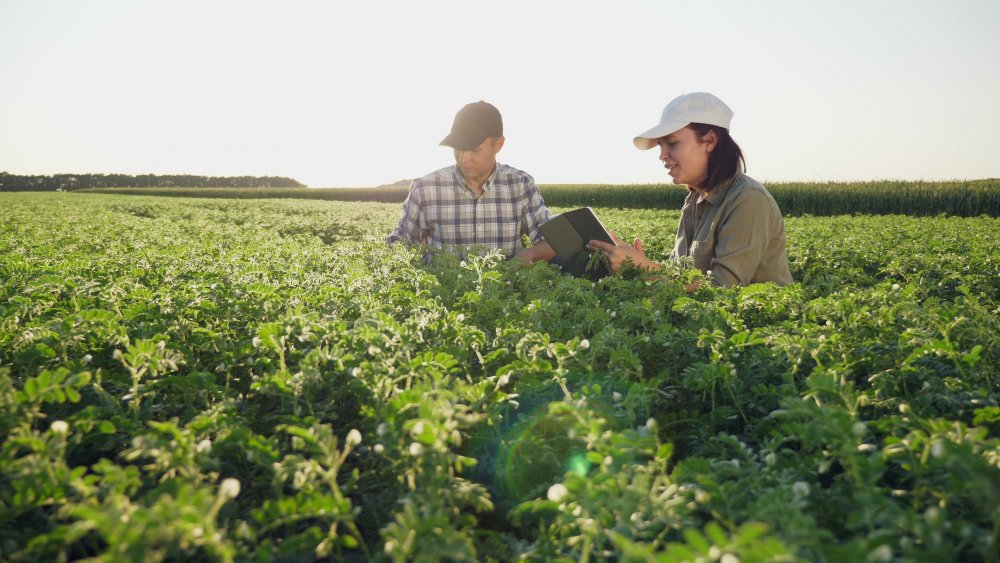Why You Should Think Twice About Buying Out-Of-Season Produce
You might think that by ordering a big salad or opting for a fruit cup instead of cereal at breakfast you're making a very healthy choice, but depending on where and when you get your produce, you could be seriously mistaken. Business Insider reports that you may be losing some of the advantages and nutritional value from your fruits and vegetables when you buy them out-of-season. Consuming produce that was grown out-of-season and picked under-ripe removes a lot of the health benefits you expect to gain when you eat them. This is because many foods, like tomatoes, berries, and pineapple, do not develop all of their nutritional benefits until the last stages of ripening (via Shape).
Some fruits even lose nutritional value after they're picked! Business Insider states that fruits which are considered climacteric (like apples, bananas, and melons) continue to ripen after harvest. This is good for year-round flavor, as they can be picked while they're immature and become perfectly ripe as they travel to your supermarket from across the country — however, it's not great for your health, as these fruits lose nutritional value the longer they are allowed to ripen after being harvested.
In-season produce is tastier and also good for the local economy
Vox spoke to a number of farmers, chefs, and specialty markets about the cons of buying out-of-season produce and how to tell which fruits and vegetables were recently picked. In The Dorito Effect, author Mark Schatzker explains that out-of-season foods are generally less flavorful and nutritious than their in-season counterparts not only because they are picked under ripe, but also because many companies farming and shipping products to supermarkets year-round prioritize uniformity and durability over flavor, while foods produced on a smaller scale tend to be more focused on quality.
On top of the nutritional and flavor benefits you experience when eating seasonally, it is also an incredibly important way to support your local economy. According to Seasonal Food Guide, since produce that is in-season is generally picked ripe, it cannot travel without spoiling as far as out-of-season produce is able to. This means most in-season produce found in stores and restaurants is sourced from farms near the area in which you live. Buying from small, local farms helps bolster the economy, as it creates jobs and tax revenue, and allows workers to reinvest in the community they are also a part of.

